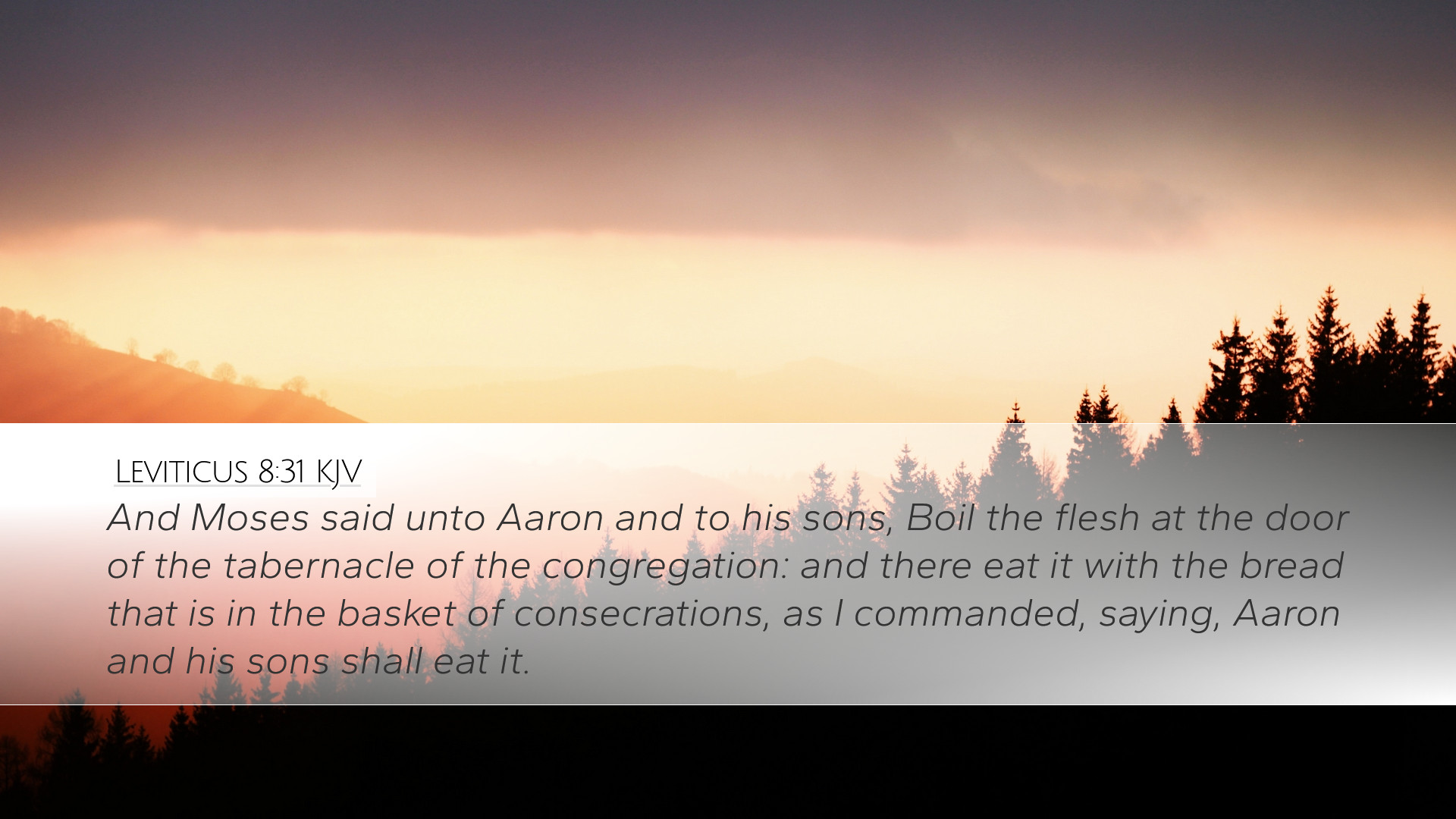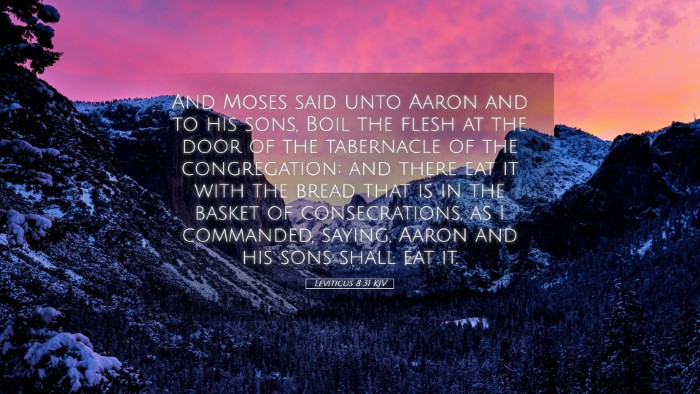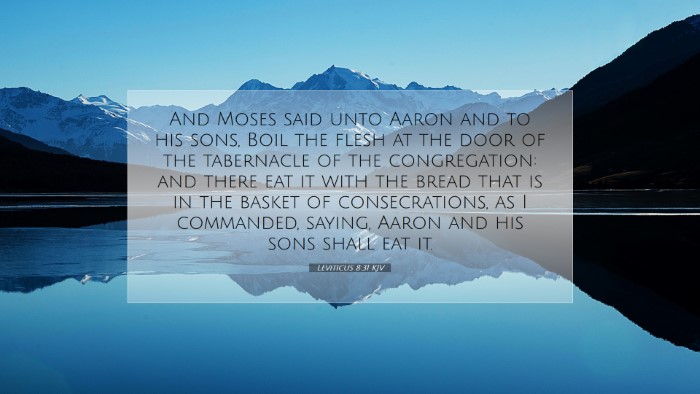Commentary on Leviticus 8:31
Verse: Leviticus 8:31 - "And Moses said unto Aaron and to his sons, Boil the flesh at the door of the tabernacle of the congregation: and there eat it with the bread that is in the basket of consecrations, as I commanded, saying, Aaron and his sons shall eat it."
Introduction
This verse encapsulates a critical moment in the consecration of Aaron and his sons as priests. In this passage, we find instructions from Moses regarding the preparation and consumption of offerings, which highlights the sacred nature of their new roles in the Israelite community. The significance of these actions extends beyond mere ritual practice; they symbolize a deeper covenant relationship with God.
Observations from Public Domain Commentaries
Matthew Henry's Commentary
Matthew Henry provides an insightful exploration of the sacrificial rituals depicted in this chapter. He emphasizes that the act of boiling the flesh at the door of the tabernacle signifies the idea of offering in the presence of God. This act serves as a visible representation of their commitment to serve God in their priestly roles.
Henry notes that the specifics of consuming the offerings signify God’s provision for His servants, as they are to eat the meat and bread at the entrance to the tabernacle. This portrayal reinforces the concept that those appointed to minister before the Lord are sustained by Him.
Symbolism of the Offerings
Henry elaborates on the symbolism inherent in the offerings. The flesh represents the sacrificial aspect of the priesthood, encapsulating both the death of the animal and the life it provides to the priests. By consuming the sacrifices, the priests partake in a communal and covenantal meal that binds them to God’s service.
Albert Barnes' Notes
Albert Barnes focuses on the instructions given directly by Moses. He points out that the act of boiling the sacrifice, as opposed to other methods of cooking, symbolizes a purity and a ritual fitness that is necessary for the offerings presented before God.
Barnes emphasizes the significance of the "door of the tabernacle," illustrating that this spot is set apart for holy encounters. The instructions highlight proper conduct during worship, calling out for adherence to divine protocols in every aspect of priestly duties.
The Role of Aaron and His Sons
According to Barnes, this moment marks the transition of Aaron and his sons into their priestly roles. Eating the consecrations is a vital act that marks their inauguration. It is an acknowledgment of their new responsibilities and the serious nature of the office they hold. They are reminded that they are partaking not just for sustenance but as a reminder of their dedicated service to God.
Adam Clarke's Commentary
Adam Clarke provides a detailed analysis of the rituals concerning the ordination of priests. He describes the meticulousness of the priests' consecration as a necessary step in establishing a lineage of holy service. Clarke notes that this ritualistic eating aligns the priests with the divine command, making it evident that their sustenance and their duty come from God’s directive.
Clarke points out the communal nature of these sacrifices, suggesting that it establishes a fellowship between the priests and the people they serve, united through shared sacrifices and divine worship.
Ecclesiastical Application
For Clarke, the act of eating the offerings encapsulates the essence of spiritual nourishment. It reflects the idea that spiritual leaders must continually engage with the sacred to sustain themselves and their ministry. This connection to God through sacred food symbolizes the life and grace that flows from obedience to His commands.
Theological Significance
From a theological perspective, Leviticus 8:31 speaks to the foundational principles of service and spiritual sustenance. The call to boil the flesh and consume it signifies that the priests are to remain grounded in humility and dependency on God’s provision. Their consuming the offerings represents their role as mediators between God and the people, underscoring the significance of worship as a communal act.
Covenantal Meal
The consumption of the offerings as a “covenantal meal” has implications for understanding the New Covenant as well. Just as Aaron and his sons were called to partake in sacred meat, Christians are called to partake in the body and blood of Christ, a spiritual fulfillment of the priests’ role and an inward transformation.
Conclusion
In Leviticus 8:31, the ritual of boiling and consuming offerings at the entrance of the tabernacle lays the groundwork for understanding the sanctity of priestly service and the spiritual sustenance derived from obedience to God's commands. As pastors and theologians reflect on this passage, they are reminded of the sacred nature of their service, the importance of community in worship, and the ever-present call to rely on God for provision and strength in their ministries.


